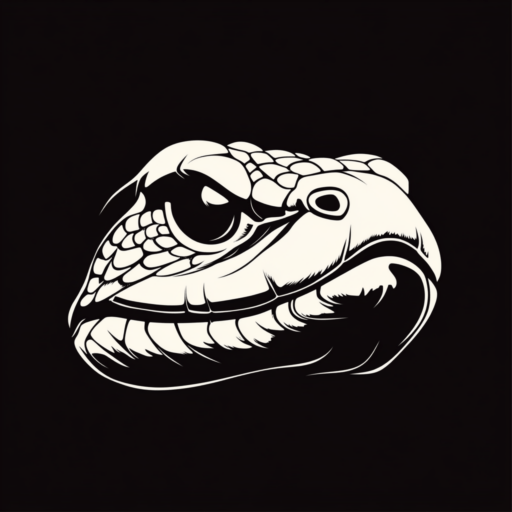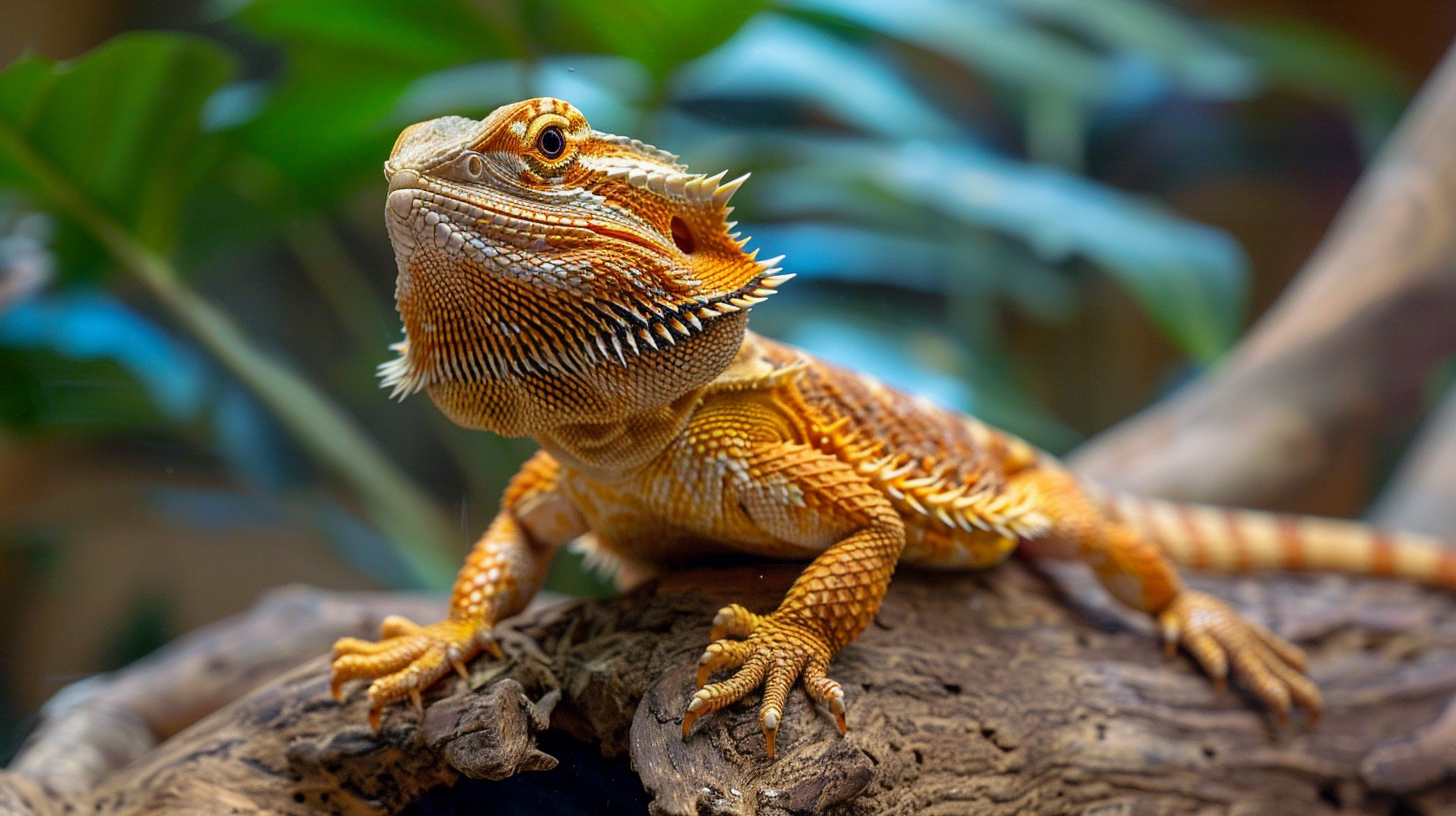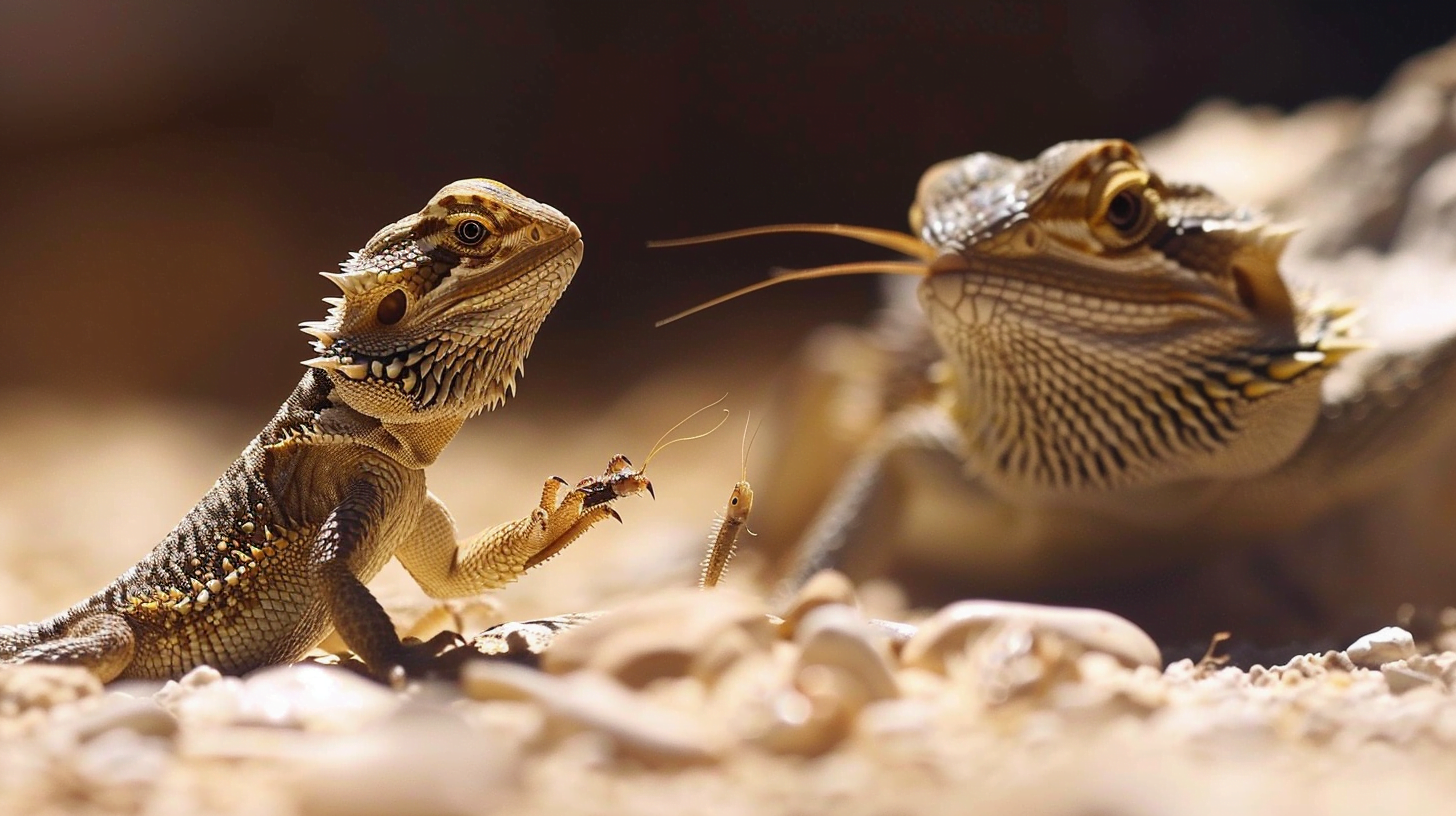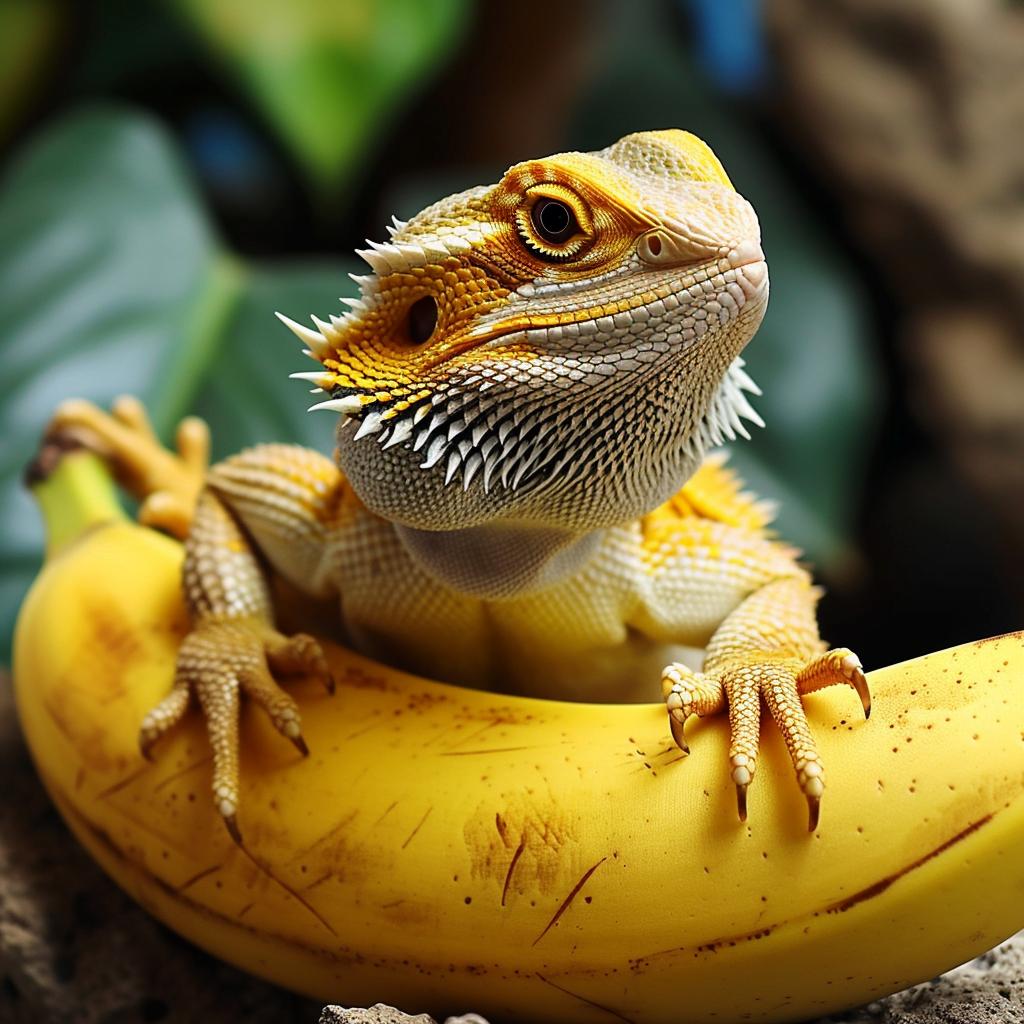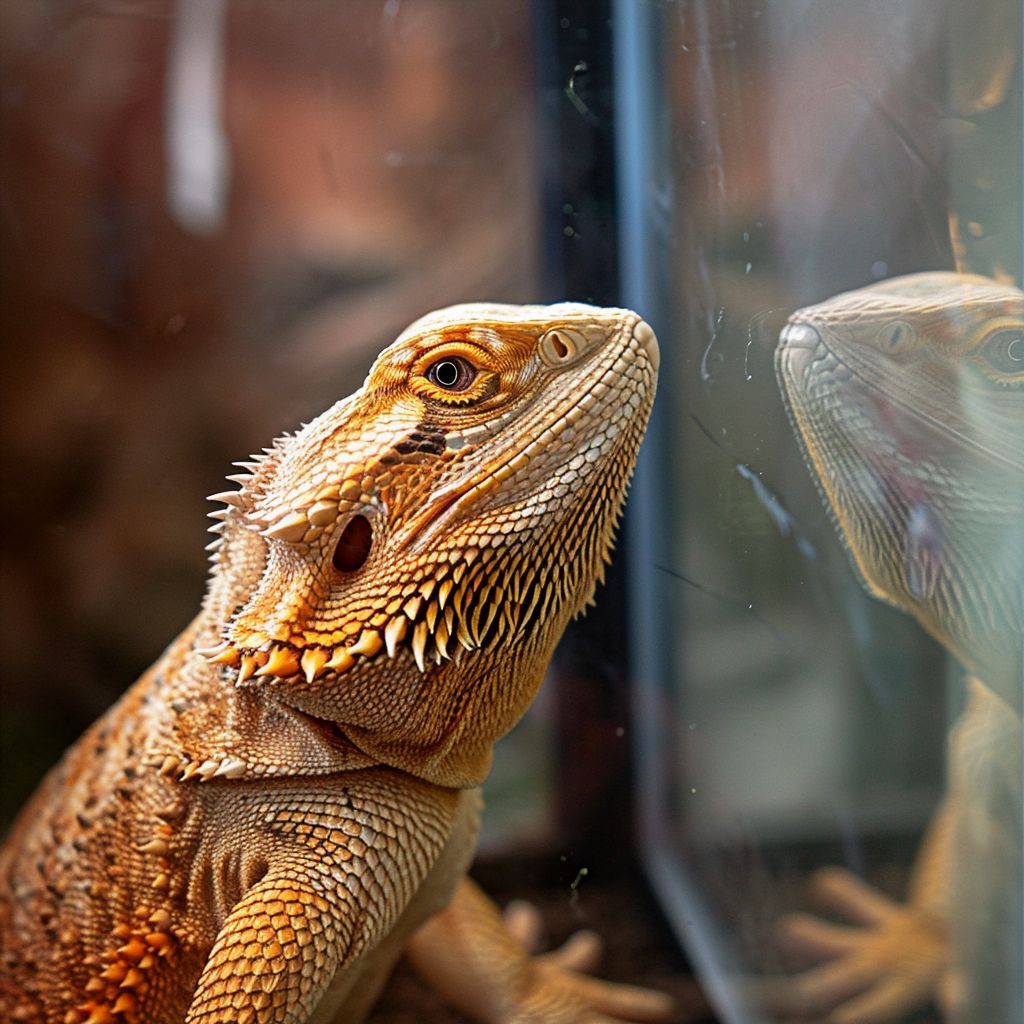Table of Contents
In this article, I explore the perplexing phenomenon of bearded dragons refusing to eat. With their robust and adaptable nature, one might assume these reptiles would consume anything placed before them. However, contrary to expectation, bearded dragons occasionally exhibit a fascinating behavior where they adamantly reject food. This puzzling refusal has prompted me to investigate the potential reasons behind this unfavorable change in their eating habits, shedding light on the various factors that may contribute to this peculiar phenomenon. Reasons why bearded dragons refuse to eat:
| Reason for Refusal to Eat | Description | Suggested Actions/Remedies |
|---|---|---|
| Illness or Health Issues | Bearded dragons may refuse food due to various ailments like infections. | Consult a veterinarian, monitor for signs of illness. |
| Temperature and Lighting Problems | Incorrect habitat temperature and lighting can impact their appetite. | Ensure proper basking temperatures and UVB exposure. |
| Inadequate Habitat or Living Conditions | Stress from an inappropriate living space can lead to appetite loss. | Provide a spacious enclosure with proper substrates and hiding spots. |
| Stress or Anxiety | External stressors can disrupt eating patterns. | Minimize stressors, ensure a calm environment. |
| Inappropriate Diet or Feeding Practices | An improper diet can affect their digestive system and appetite. | Offer a balanced diet with leafy greens, vegetables, fruits, and insects. |
| Brumation | A natural hibernation-like state can reduce appetite. | Understand and support bearded dragons during brumation. |
| Age-related Changes in Appetite | Older bearded dragons may eat less or become pickier. | Adjust diet and feeding practices to accommodate age-related changes. |
| Behavioral Changes or Territoriality | Behavioral shifts, especially in breeding season, can affect eating. | Recognize and accommodate natural behavioral patterns. |
| Environmental Changes or Disruptions | Sudden changes in their environment can cause stress and appetite loss. | Introduce changes gradually, monitor their response. |
| Other Underlying Factors | Sometimes the cause is not immediately apparent. | Seek veterinary advice for thorough examination and analysis. |
Reasons why bearded dragons refuse to eat
Bearded dragons, scientifically known as Pogona vitticeps, are popular pet reptiles known for their friendly disposition and unique appearance. While these creatures generally have a healthy appetite, there are occasions when they may refuse to eat. As an academic researcher in the field of herpetology, I aim to shed light on the reasons why bearded dragons may exhibit such behavior. In this comprehensive article, we will explore ten potential explanations for why bearded dragons may refuse to eat, ranging from illness and health issues to environmental changes and other underlying factors.
Illness or health issues
One of the primary reasons why bearded dragons may refuse to eat is due to illness or underlying health issues. These reptiles, like any living creature, are prone to various ailments that can affect their appetite. Gastrointestinal parasites, respiratory infections, metabolic bone disease, and organ failure are just a few examples of health conditions that can cause a bearded dragon to lose interest in eating. It is crucial for reptile owners to observe any signs of illness such as lethargy, weight loss, abnormal stools, or changes in behavior, and seek veterinary assistance promptly.
Temperature and lighting problems
Bearded dragons are ectothermic creatures, meaning they rely on external sources for regulating their body temperature. Insufficient or incorrect temperature and lighting within their habitat can significantly impact their overall health and appetite. Inadequate basking temperatures, insufficient ultraviolet B (UVB) exposure, or inconsistent light cycles can lead to discomfort and metabolic imbalances, resulting in a loss of appetite. Maintaining the proper temperature gradient and providing appropriate lighting is essential to ensure the well-being of a bearded dragon.

Inadequate habitat or living conditions
Another factor that can contribute to a bearded dragon’s refusal to eat is an inadequate habitat or living conditions. Bearded dragons require a spacious enclosure with suitable substrates, climbing branches, hiding places, and a temperature gradient. Lack of space, proper hiding spots, or inappropriate substrates may cause stress and discomfort, leading to appetite suppression. A well-designed and appropriately sized enclosure that replicates the natural habitat of a bearded dragon is crucial for their overall health and well-being.
Stress or anxiety
Bearded dragons, despite their seemingly calm and relaxed demeanor, can experience stress and anxiety, which can directly impact their appetite. Various factors can trigger stress in these reptiles, including improper handling, excessive noise or activity, presence of other pets, or changes in their environment. Stress can disrupt their eating patterns and cause them to avoid food altogether. Identifying and minimizing stressors in a bearded dragon’s environment can help alleviate their anxiety and encourage them to resume their regular eating habits.

Inappropriate diet or feeding practices
Bearded dragons are omnivorous creatures with specific dietary requirements. Feeding them an inappropriate diet or following incorrect feeding practices can lead to a loss of appetite. A diet lacking in essential nutrients, improper calcium-to-phosphorus ratio, or excess treats and human food can adversely affect a bearded dragon’s digestive system and overall health, causing them to refuse food. Providing a balanced diet consisting of appropriate leafy greens, vegetables, fruits, and live insects is crucial to meet their nutritional needs and promote healthy eating habits.
Brumation
Brumation is a natural process similar to mammalian hibernation that some bearded dragons go through during the winter months. This period is characterized by reduced activity, appetite suppression, and a decrease in metabolic rate. Although not all bearded dragons brumate, those that do may exhibit a significant decrease in their food intake. It is essential for owners to understand and provide appropriate care during this period, including maintaining appropriate temperatures, light cycles, and offering occasional food and hydration to prevent dehydration and malnutrition.

Age-related changes in appetite
As bearded dragons age, it is not uncommon for them to experience changes in their appetite. Just like humans, these creatures may have reduced metabolic rates and altered dietary preferences as they mature. Older bearded dragons may consume less food or become pickier eaters, leading to a decrease in their overall food intake. Regular monitoring of their weight, adjusting feeding practices, and offering a variety of food options can help accommodate age-related changes in appetite and ensure their nutritional needs are met.
Behavioral changes or territoriality
Bearded dragons, despite their docile nature, can exhibit territorial behaviors, especially during breeding seasons. Male bearded dragons, in particular, can become highly aggressive and territorial, avoiding food consumption in favor of establishing dominance or focusing on courtship rituals. Females may also exhibit changes in appetite during periods of gravidity or egg-laying. Understanding and accommodating these natural behaviors is crucial in maintaining a healthy appetite for bearded dragons.
Environmental changes or disruptions
Bearded dragons are highly sensitive to changes in their environment. Unexpected alterations, such as relocation to a new enclosure, rearrangement of furniture, or even small changes in lighting or humidity levels, can stress them and cause a temporary loss of appetite. Owners must introduce changes gradually and monitor their bearded dragon’s behavior and feeding patterns during such transitions to minimize disruption and facilitate a smooth adjustment period.
Other underlying factors
In some cases, bearded dragons may refuse to eat without any apparent cause or explanation. These instances might be due to subtle underlying factors that are challenging to identify without veterinary assistance. Blood work, fecal analysis, and a thorough examination by a reptile veterinarian can help identify any hidden health issues or reasons for the appetite suppression. Consulting with a professional can assist in determining the appropriate course of action to address the bearded dragon’s specific needs.
In conclusion, while a bearded dragon’s refusal to eat can be concerning for their owners, it is essential to consider various factors that may contribute to this behavior. Illness or health issues, temperature and lighting problems, inadequate habitat or living conditions, stress or anxiety, inappropriate diet or feeding practices, brumation, age-related changes, behavioral changes or territoriality, environmental changes or disruptions, and other underlying factors can all play a role in a bearded dragon’s appetite suppression. By identifying and addressing these potential causes, owners can help ensure the well-being and nutritional needs of their bearded dragons.
